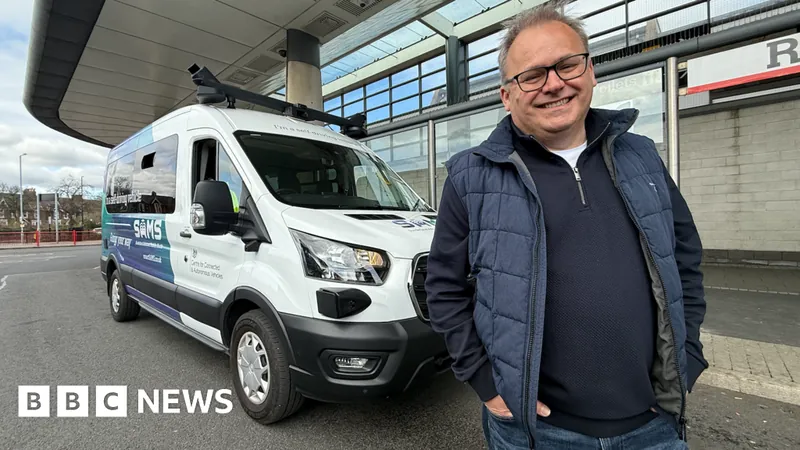
Revolutionary Driverless Bus Trial in Sunderland Draws Mixed Reactions
2025-03-31
Author: Sarah
Introduction
In a groundbreaking initiative aimed at eliminating "human error," a multimillion-pound trial of a driverless bus in Sunderland has successfully concluded after a month of operation in the city center. The trial was designed to shuttle passengers between Park Lane and the Royal Hospital, operated by an autonomous bus that included a safety driver on board to manage any unforeseen situations.
Public Sentiment
While many people expressed apprehension about the concept of fully driverless vehicles, fearing potential accidents, experiences from the trial suggest that these concerns subsided once passengers experienced the technology firsthand. Project leaders are optimistic about the future of autonomous transport, insisting that public sentiment will shift as people become more familiar with the technology.
Technology Behind the Bus
This innovative trial was a collaboration between Sunderland Smart Cities and automation software company Oxa, which developed the autonomous system by transforming a Ford Transit van into a high-tech minibus complete with an array of cameras and sensors. Under current UK regulations, a trained driver must always be present behind the wheel—although new legislation could eventually eliminate this requirement.
Expert Opinions
According to Richard Jinks, Oxa's Chief Operating Officer, "A high percentage of accidents are caused by human error, and much of what we are developing aims to mitigate that." He noted that while new regulations are pending, current technology could be applied in areas less affected by legal constraints, such as airport baggage handling and port logistics.
Commuter Reactions
Amid the experiment, commuters at Sunderland's Park Lane Interchange shared their mixed feelings regarding driverless buses. One passenger stated, "I wouldn't feel safe and didn't trust them," while another conveyed fear regarding potential incidents without a human driver. Liz St Louis, director of Smart Cities for Sunderland City Council, acknowledged this trepidation as normal, emphasizing that public attitudes could evolve positively once individuals experienced riding in an autonomous vehicle.
The Future of Autonomous Mobility
"It's crucial to recognize that autonomous mobility represents the future," she declared, highlighting the advancements seen in other parts of the world while noting that the UK is making strides to catch up.
Concerns about Job Security
However, the prospect of increased automation has drawn concern from labor unions, who stress the importance of protecting jobs amid this technological transition. St Louis reassured that while automation will evolve, there will always be demand for experienced drivers, particularly in remote supervisory roles.
Investment and Future Prospects
With approximately £4.9 million invested into this pioneering project—£2.7 million of which was provided by the government—the trial aims to collect invaluable data on how self-driving buses can operate safely in urban environments. The initiative positions Sunderland as a leader in the UK’s exploration of autonomous transport solutions, paving the way for potential future developments.
Conclusion
Will autonomous buses truly revolutionize public transport? Or will public skepticism hold back progress? One thing is for sure: the road ahead is anything but ordinary! Stay tuned as the journey of driverless technology unfolds!

 Brasil (PT)
Brasil (PT)
 Canada (EN)
Canada (EN)
 Chile (ES)
Chile (ES)
 Česko (CS)
Česko (CS)
 대한민국 (KO)
대한민국 (KO)
 España (ES)
España (ES)
 France (FR)
France (FR)
 Hong Kong (EN)
Hong Kong (EN)
 Italia (IT)
Italia (IT)
 日本 (JA)
日本 (JA)
 Magyarország (HU)
Magyarország (HU)
 Norge (NO)
Norge (NO)
 Polska (PL)
Polska (PL)
 Schweiz (DE)
Schweiz (DE)
 Singapore (EN)
Singapore (EN)
 Sverige (SV)
Sverige (SV)
 Suomi (FI)
Suomi (FI)
 Türkiye (TR)
Türkiye (TR)
 الإمارات العربية المتحدة (AR)
الإمارات العربية المتحدة (AR)